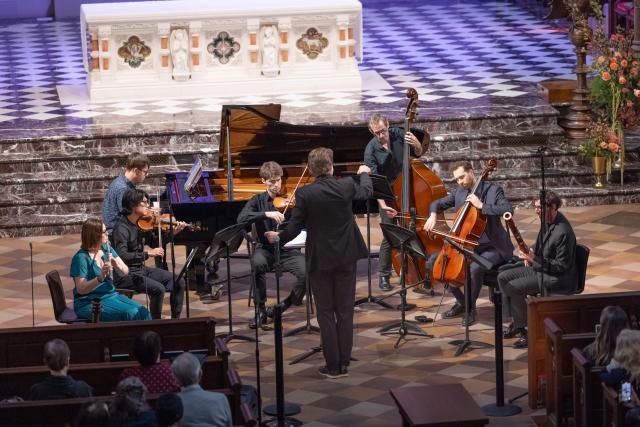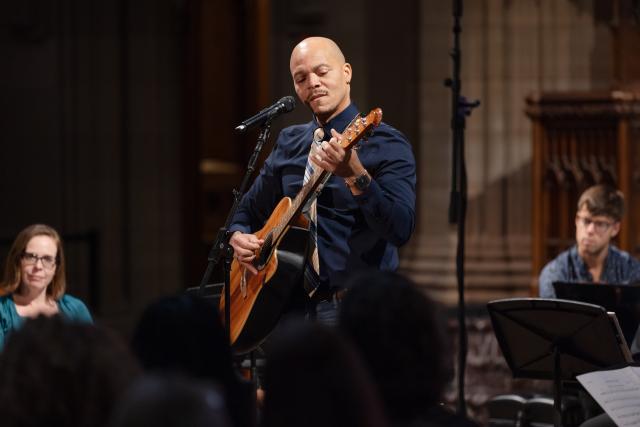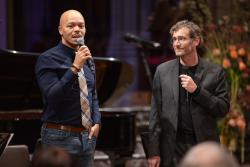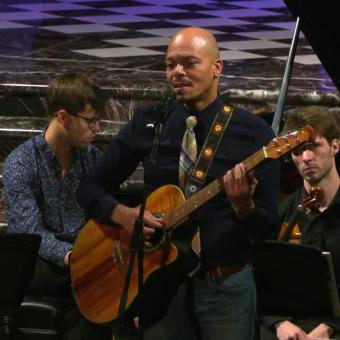Music from Inside: Incarcerated Composers on Healing our Justice System
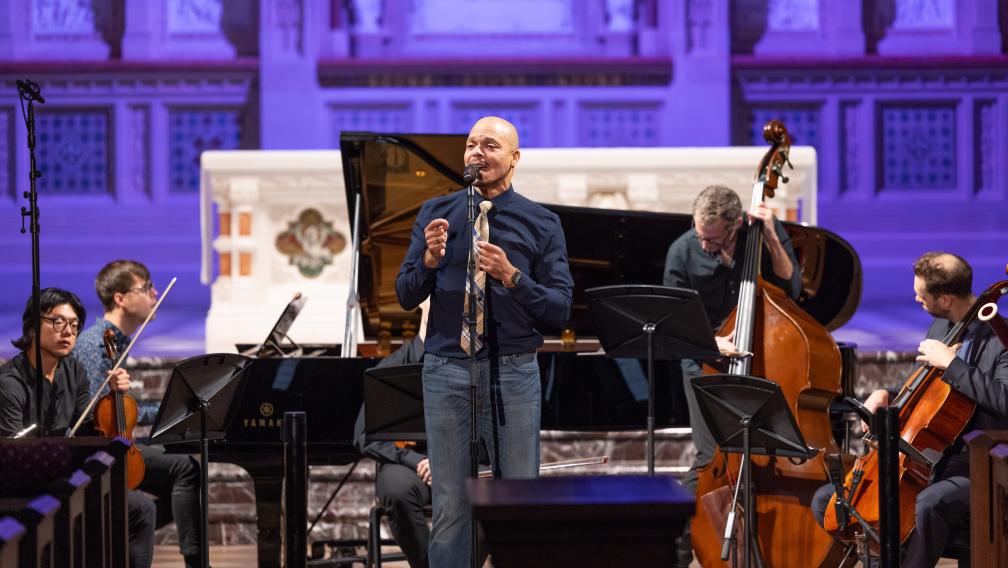
How Trinity Church Wall Street is using art to pave a path to humanity and justice.
With a panel of prison reform experts, a contemporary ensemble, and a program of music composed by incarcerated musicians, Trinity Church Wall Street has launched "Renewal"—a powerful series of events designed to move the needle on social justice issues.
“At Trinity, we are always grappling with how to aim for a better world,” said Melissa Baker, Trinity’s Director of Artistic Planning, at the October 15 debut. “Music can help us do that.” Sunday’s events showed how.
The day kicked off with “The Future of Rikers Island: Why It Matters,” a public discussion hosted by members of Trinity’s own prison ministry. Attendees heard from panelists such as Speaker Adrienne Adams, of the New York City Council, and the Reverend Chloe Breyer, Executive Director of The Interfaith Center of New York, about why the scheduled closure of one of the world’s largest correctional facilities is already long overdue.
The concert that followed, “Renewal: Mending a Broken System,” highlighted the humanity that still manages to survive in such inhumane places. The program included "Louange à l’Éternité de Jésus" from Quatuor pour la fin du temps, written by French composer Olivier Messiaen, which moved and renewed in equal measure.
“In this tense discordant piece, there’s a moment of respite, when the cello plays an unending melody,” said NOVUS NY pianist, Daniel Schlosberg, of the work that was written while Messiaen was interned in a German POW camp during World War II. “It gives a glimmer of hope and light.”
Music created by the less-famous composers had a no-less-profound impact on those filling Trinity’s pews. The lineup, from individuals still serving time in Sing Sing Correctional Facility, included chamber music by Paul Cortez; a suite of songs for flute, bassoon, strings, and piano by Xiaobao He; and an opera, 9131 (the number of days in a 25-year sentence), by Joseph Wilson.
“Clearly these pieces are artistically valuable—but they are also surprising to people,” said singer-songwriter Kenyatta Emmanuel, an artist-in-residence for the "Initiative for a Just Society" at Columbia University School of Law, who explains that there is power in such surprise.
“When beauty comes from someplace unexpected, it can shock us into seeing things a different way—it hits your heart and opens it,” said Kenyatta, who served 24-and-a-half years in prison himself, and ended the day’s concert with three of his own compositions. The artist and activist, who holds degrees in behavioral science and theology and gave a TEDx Talk about how art can break down barriers to human connection, believes events like Trinity’s "Renewal" series help us reconsider how we view the imprisoned population, which we might think of as refuse, and begin to see it as a resource instead.
“That’s what hope is about—the realization that the possibility for something better exists in hidden places.”
shock us into seeing things a different way,” said Kenyatta.
Like Kenyatta, the other featured composers are the product of programs that brought hope to one such hidden place. Carnegie Hall’s "Musical Connections," which focuses on musical composition, invites men at Sing Sing Correctional Facility to create and perform their work with visiting artists.
“When Carnegie first came in, they started by exposing us to music we wouldn’t normally hear on the radio,” Kenyatta explained. “Then they asked us what we wanted to do next—no one ever asked us what we wanted!—and we overwhelmingly said ‘instruction.’
"One guy who didn’t play an instrument wanted to learn to compose so badly he taught himself violin so he could take part,” said Kenyatta, who joined the program from the beginning and played a concert at Carnegie Hall the day he was released from Sing Sing four years ago.
“Music is an unparalleled tool for building community and offering temporary relief from the dehumanizing conditions in prisons,” said Brad Balliett, a bassoonist, composer, and teaching artist with Musicambia, a similar program that brings music and education to correctional facilities across the country. With NOVUS NY on Sunday, Balliett played one of his own pieces, Night Minuet, which he premiered at a correctional facility in South Carolina. Balliett teaches regularly at Sing Sing, directs a program at California’s San Quentin State Prison, and works with the Bard Prison Initiative to teach college-level composition to inmates.
The Trinity "Renewal" series will continue in upcoming weeks with programs that tackle immigration and climate change. On November 16, at 6:30pm, NOVUS NY will present the entirety of Messiaen’s Quatuor pour la fin du temps (Quartet for the End of Time), and Pulitzer Prize winner Richard Powers will narrate the concert with excerpts from his book Orfeo. And on December 3, at 4 pm, Sandbox Percussion and NOVUS NY will present a concert featuring Viet Cuong’s Re(new)al as well as two pieces inspired by The Overstory, Powers’ powerful novel on activism, resistance, and the natural world: Jessica Meyer’s A Passage Between Earth and Sky and the collaborative eco-cantata of four composers and five authors, A Forest Unfolding.
Though the issues will change, the goal each month will remain the same. Says Baker: “When injustice and terror and grief weigh heavily in our hearts, our response is to put more beauty and love into the world."






